 * Image source/caption: same as the link below
* Image source/caption: same as the link below'Concerned over the supply of oil to the US and a supposed need to continue the global 'War on Terror', President Barack Obama has essentially maintained the militarised approach to Africa that was the hallmark of his immediate predecessors George W. Bush and Bill Clinton, writes Daniel Volman. The escalation of AFRICOM (United States African Command) activities, argues Volman, underlines a troubling commitment to an approach based on might and dominance, one entirely at the expense of promoting sustainable economic development and democracy.'
* Informed at the Information Clearing House on Dec. 18, 2009
Obama moves ahead with AFRICOM
Pan African Voices for Freedom and Justice
Daniel Volman
2009-12-10, Issue 461
Concerned over the supply of oil to the US and a supposed need to continue the global 'War on Terror', President Barack Obama has essentially maintained the militarised approach to Africa that was the hallmark of his immediate predecessors George W. Bush and Bill Clinton, writes Daniel Volman. The escalation of AFRICOM (United States African Command) activities, argues Volman, underlines a troubling commitment to an approach based on might and dominance, one entirely at the expense of promoting sustainable economic development and democracy.
In his 11 July 2009 speech in Accra, Ghana, US President Barack Obama declared, 'America has a responsibility to advance this vision, not just with words, but with support that strengthens African capacity. When there is genocide in Darfur or terrorists in Somalia, these are not simply African problems – they are global security challenges, and they demand a global response. That is why we stand ready to partner through diplomacy, technical assistance, and logistical support, and will stand behind efforts to hold war criminals accountable. Our Africa Command is focused not on establishing a foothold in the continent, but on confronting these common challenges to advance the security of America, Africa and the world.'
And yet all the available evidence demonstrates that he is determined to continue the expansion of US military activity on the continent initiated by President Bill Clinton in the late 1990s and dramatically escalated by President George W. Bush from 2001 to 2009. While many expected the Obama administration to adopt a security policy toward Africa that would be far less militaristic and unilateral than that pursued by his predecessor, the facts show that he is in fact essentially following the same policy that has guided US military involvement in Africa for more than a decade.
The clearest indication of President Obama’s intentions for AFRICOM (United States African Command) and for America’s military involvement in Africa is provided by the budget requests for the 2010 financial year submitted by the Departments of State and Defense to Congress in May 2009. The State Department budget request – which includes funding for all US arms sales, military training, and other security assistance programmes – proposes major increases in funding for US arms sales to a number of African countries through the Foreign Military Financing (FMF) programme. The budget proposes to increase FMF funding for sub-Saharan African counties more than 300 per cent, from just over US$8.2 million to more than US$25.5 million, with additional increases in funding for Maghrebi countries. Major recipients slated for increases include Chad (US$500,000), the Democratic Republic of Congo (US$2.5 million), Djibouti (US$2.5 million), Ethiopia (US$3 million), Kenya (US$1 million), Liberia (US$9 million), Morocco (US$9 million), Nigeria (US$1.4 million), South Africa (US$800,000) and the Africa Regional Program (US$2.8 million).
The same trend is evident in the Obama administration's request for funding for the International Military Education and Training (IMET) programme. The budget request for the IMET programme proposes to increase funding for African countries by nearly 17 per cent, from just under US$14 million to more than US$16 million, with additional increases for Maghrebi countries. Major recipients slated for increases include Algeria (US$950,000), Chad (US$400,000), the Democratic Republic of Congo (US$500,000), Djibouti (US$350,000), Ethiopia (US$775,000), Equatorial Guinea (US$40,000), Ghana (US$850,000), Liberia (US$525,000), Libya (US$250,000), Mali (US$350,000), Morocco (US$1.9 million), Niger (US$250,000), Nigeria (US$1.1 million), Rwanda (US$500,000), Senegal (US$1.1 million), South Africa (US$900,000) and Uganda (US$550,000).
The Obama administration also proposes major new funding for security assistance provided through the Peacekeeping Operations programme. The 2010 financial year budget proposes to increase funding for the Trans-Sahara Counter-Terrorism Partnership – from US$15 million in the 2009 financial year to US$20 million in 2010 – and for the East Africa Regional Strategic Initiative from US$5 million in the 2009 financial year to US$10 million in the 2010 financial year.
It also includes US$42 million to continue operations in support of the implementation of the Comprehensive Peace Accords (CPAs) in southern Sudan, US$10 million to help create a professional 2,000-member armed force in Liberia, US$21 million to continue operations in the Democratic Republic of Congo to reform the military (including the creation of rapid reaction force for the eastern Congo and the rehabilitation of the military base at Kisangani), and US$3.6 million for the Africa Conflict Stabilization and Border Security Program, which will be used to support monitoring teams, advisory assistance, training, infrastructure enhancements, and equipment in the Great Lakes region, the Mano River region, the Horn of Africa, Chad and the Central African Republic.
And it includes US$67 million to support the African Union mission in Somalia, along with a request for US$96.8 million for the Global Peace Operations Initiative (GPOI). The request for the GPOI includes funding for the African Contingency Operations and Training Assistance Program (ACOTA) – which provides training and equipment to a number of African military forces to enhance their peacekeeping capabilities – and the Obama administration has requested US$96.8 million for ACOTA activities in the 2010 financial year.
Furthermore, the Obama administration’s budget request for International Narcotics Control and Law Enforcement (INCLE) programmes contains US$24 million for Sudan to support the implementation of the Comprehensive Peace Accords in southern Sudan and to assist programmes to stabilise Darfur by providing technical assistance and training for southern Sudan’s criminal justice sector and law enforcement institutions as well as contributing to UN civilian police and formed police units in southern Sudan and Darfur. It also includes funds for police reforms in the Democratic Republic of Congo (DRC); for training, infrastructure, and equipment for police units in Liberia; to operate the American-run International Law Academy in Gaborone, Botswana; and to create a Regional Security Training Center for West, Central and North Africa.
READ MORE

![[URGENT PLEA: In Update] EMERGENCY in GANGJEONG Since AUG. 24, 2011](http://2.bp.blogspot.com/-3iz8k-USXVY/TlmRYhhIYtI/AAAAAAAAL2c/9dbF85ZIkIs/s227/jejusit.jpg)
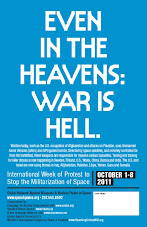
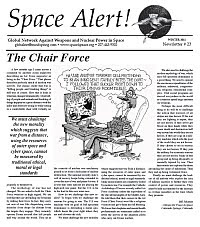

![[Solidarity from Japan for the Jeju] 253 individuals and 16 groups/organizations](http://2.bp.blogspot.com/_gnM5QlRx-4c/TR_YeNVE1yI/AAAAAAAAHWQ/ARyf6oQN0S0/S227/jeju_12_10j.jpg)
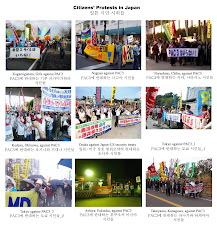
![[Translation] Korean organizations' statement: Immediately cancel the joint ROK-US drill Nov 26](http://2.bp.blogspot.com/_gnM5QlRx-4c/TPOE8VKXHFI/AAAAAAAAGlM/8lryt-8sFjc/S227/1.jpg)
![HOT! [Hankyoreh Hani TV] Beneath the Surface: the investigation into the sinking of the Cheonan](http://4.bp.blogspot.com/_gnM5QlRx-4c/TOI83qht8aI/AAAAAAAAGXU/22SW6Q5ntV8/S227/HaniTV%2BCheonan.gif)
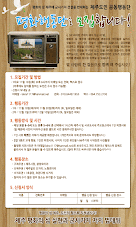
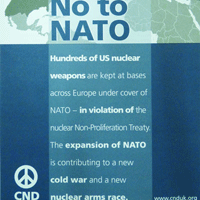

![[Translation]Statement against illegal inspection and unjust lay-off by the Kunsan USAFK!(Nov_2010)](http://4.bp.blogspot.com/_gnM5QlRx-4c/TOPLsVkZMqI/AAAAAAAAGZs/3YnnckIyAaY/S227/gunsan%2Bprotest.gif)
![[Translation] Korean organizations' statement against dispatching special force to the UAE on Nov.](http://4.bp.blogspot.com/_gnM5QlRx-4c/TOP95zHXlCI/AAAAAAAAGak/E0Ug1XtUFfM/S227/antiwarpeace.jpg)
![[Translation] Stop, Joining MD!: South Korean activists' statement and writing on Oct. 25, 2010](http://3.bp.blogspot.com/_gnM5QlRx-4c/TOP7Es4_2sI/AAAAAAAAGac/eWVMPD-U4p0/S227/StopMD.jpg)
![[In Update] People First, NO G-20 (Nov. 6 to 12, Korea)](http://2.bp.blogspot.com/_gnM5QlRx-4c/TJd53XBzHlI/AAAAAAAAFQo/ldO9JPE3eqo/S227/left21_G20.jpg)
![[International Petition] Stop US helipad plan in Okinawa to save great nature](http://4.bp.blogspot.com/_gnM5QlRx-4c/TKC2AHRNzBI/AAAAAAAAFUo/yGWXODTw_uM/S227/yanbaru_w.jpg)

![[Global Network] against the first launch of Quasi-Zenith Satellite, Japan, on Sept. 11, 2010](http://4.bp.blogspot.com/_gnM5QlRx-4c/TIowa1boy4I/AAAAAAAAFDI/82rAi98uq-c/S227/Qzss-45-0_09.jpg)

![[In update] Some collections on the Koreans’ protests against the sanction & war on Iran](http://4.bp.blogspot.com/_gnM5QlRx-4c/TJMvke6t8zI/AAAAAAAAFO4/tamQ8LUnOOA/S227/No+Sanction+on+Iran.jpg)
![[Three International Petitions] to End the Korean war and peace treaty(or peace resolution)](http://1.bp.blogspot.com/_gnM5QlRx-4c/THef7bzWxYI/AAAAAAAAE44/wwdzSDfYhdw/S227/border.jpg)
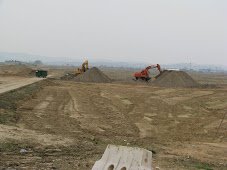


![[Collection of Documents] No Base Learning and Solidarity Program_Korea(June 14 to 20, 2010)](http://1.bp.blogspot.com/_gnM5QlRx-4c/TCTvVuN8NeI/AAAAAAAAEek/8vBJVaHdk10/S227/No-Base-banner.jpg)
![Site Fwd:[John Hines] A U.S. Debate coach’s research trip on the Issues of Korea](http://3.bp.blogspot.com/_gnM5QlRx-4c/TINCO36mzzI/AAAAAAAAE_w/Rds12NcBOXM/S227/Jeju-Peace-Tour.jpg)


![[News Update] Struggle Against the Jeju Naval Base since Jan. 18, 2010](http://1.bp.blogspot.com/_gnM5QlRx-4c/S1vvWaP25uI/AAAAAAAACkg/QvpW1tgOlKM/S226/scrum1.jpg)


![[Urgent] Please spread the Letter!: There was no Explosion! There was no Torpedo! (May 26, 2010)](http://4.bp.blogspot.com/_gnM5QlRx-4c/S_9JmsKEU7I/AAAAAAAAEP8/sAWjSPqxzUI/S227/grounded.jpg)
![Text Fwd: [Stephen Gowans]The sinking of the Cheonan: Another Gulf of Tonkin incident](http://1.bp.blogspot.com/_gnM5QlRx-4c/TAL_FtYKQ-I/AAAAAAAAERE/NEEMijiEcRM/S227/lee-myung-bak.jpg)
![[Japan Focus]Politics in Command: The "International" Investigation into the Sinking of the Cheonan](http://1.bp.blogspot.com/_gnM5QlRx-4c/TBMJ2syJzyI/AAAAAAAAEZU/uTYZccU5vyk/S227/wen_jiabao_and_lee_myungbak.png)
![[Japan Focus] Who Sank the SK Warship Cheonan? A New Stage in the US-Korean War and US-China](http://2.bp.blogspot.com/_gnM5QlRx-4c/S_iQ2vE5ZpI/AAAAAAAAEOU/Oo1SPcAe8FE/S227/buoy_map.gif)
![[Updated on 12/13/10] [Translation Project] Overseas Proofs on the Damages by the Military Bases](http://4.bp.blogspot.com/_gnM5QlRx-4c/S-qSj59gPLI/AAAAAAAAEGM/mwjlFtPE-jo/S227/missile.jpg)
![[International Petition] Close the Bases in Okinawa](http://3.bp.blogspot.com/_gnM5QlRx-4c/S8-z3DYNwNI/AAAAAAAADo4/OswTSchK09M/S227/2.jpg)

![[In Update]Blog Collection: No Korean Troops in Afghanistan](http://4.bp.blogspot.com/_gnM5QlRx-4c/SwnlLD9IewI/AAAAAAAAB9E/oUPssnpNidA/S226/No-Troops-to--Afghanistan.jpg)
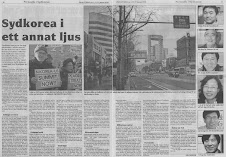

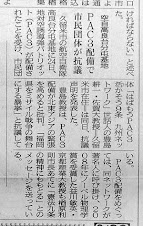

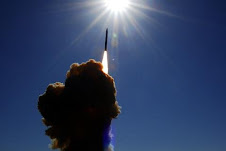


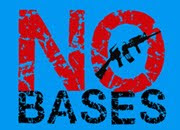
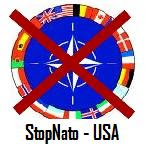


No comments:
Post a Comment